Cate Blanchett lands creative director role at Toku Saké
Actor and producer Cate Blanchett joins Hokkaido-based Toku Saké as creative director, and tells us, ‘I've been obsessed with creating a sake for a very long time’
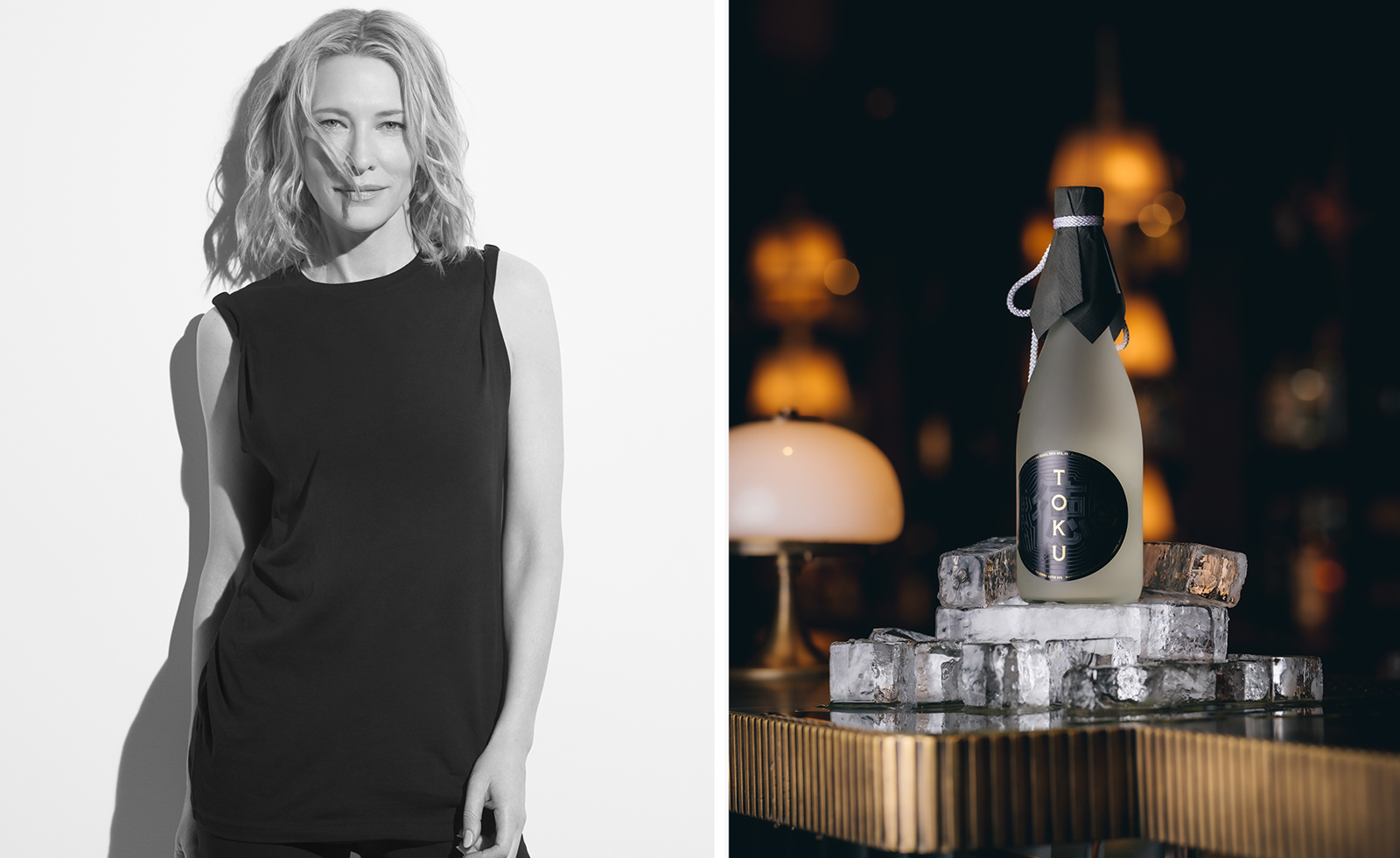
Premium sake brand Toku Saké has announced Cate Blanchett as its new creative director, 18 months after launching onto the UK market.
The double Academy Award-winning actor and producer, best known for her roles in films such as Tár, Blue Jasmine, The Aviator and The Lord of the Rings trilogy, will play a very different but integral role for Toku Saké, overseeing creative strategy and direction, from new product development through to innovation.
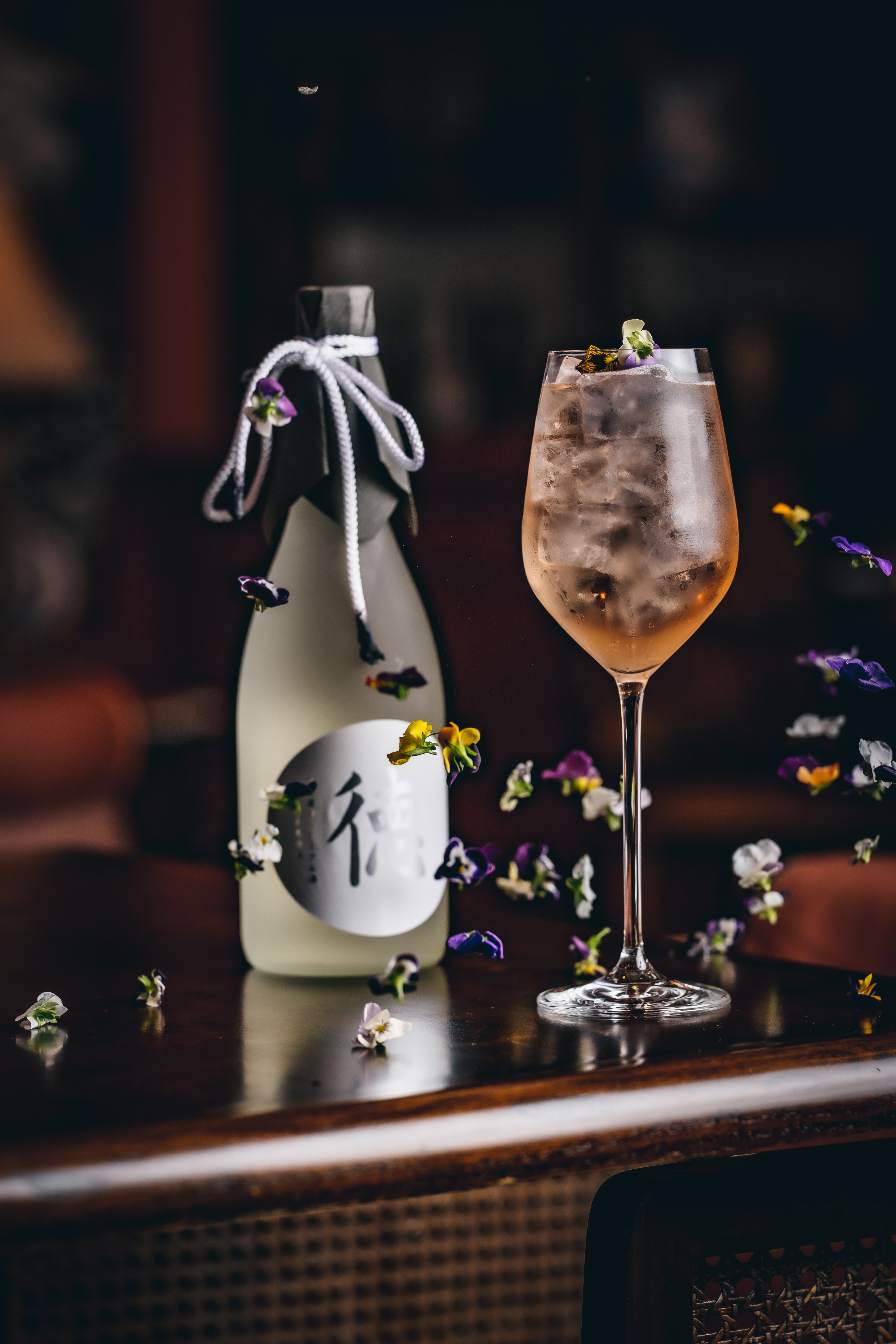
Hokkaido Spritz cocktail made with Toku Saké
Having spent time during her role as global ambassador for Japanese skincare brand SK-II visiting sake breweries in Japan, this move has fulfilled Blanchett’s long-held desire to work with a sake brand, she revealed in a welcome speech to guests (including Wallpaper*) at a celebratory event in London last week, at Japanese restaurant Izakaya at Supermarket of Dreams.
'We've had some great nights, and great friendships, great conversations have been ignited through the sharing of sake,' she tells us in an interview on the night. Having been introduced to brand founders Anthony Newman and Peter Hudson through a mutual friend, it’s clear that Blanchett is looking forward to working with the people behind Toku Saké. 'It’s a collaboration. We have a shared love of the long traditions of sake, but also of the trades that surround it. I've been obsessed with creating a sake for a very long time.'
Cate Blanchett and Toku Saké
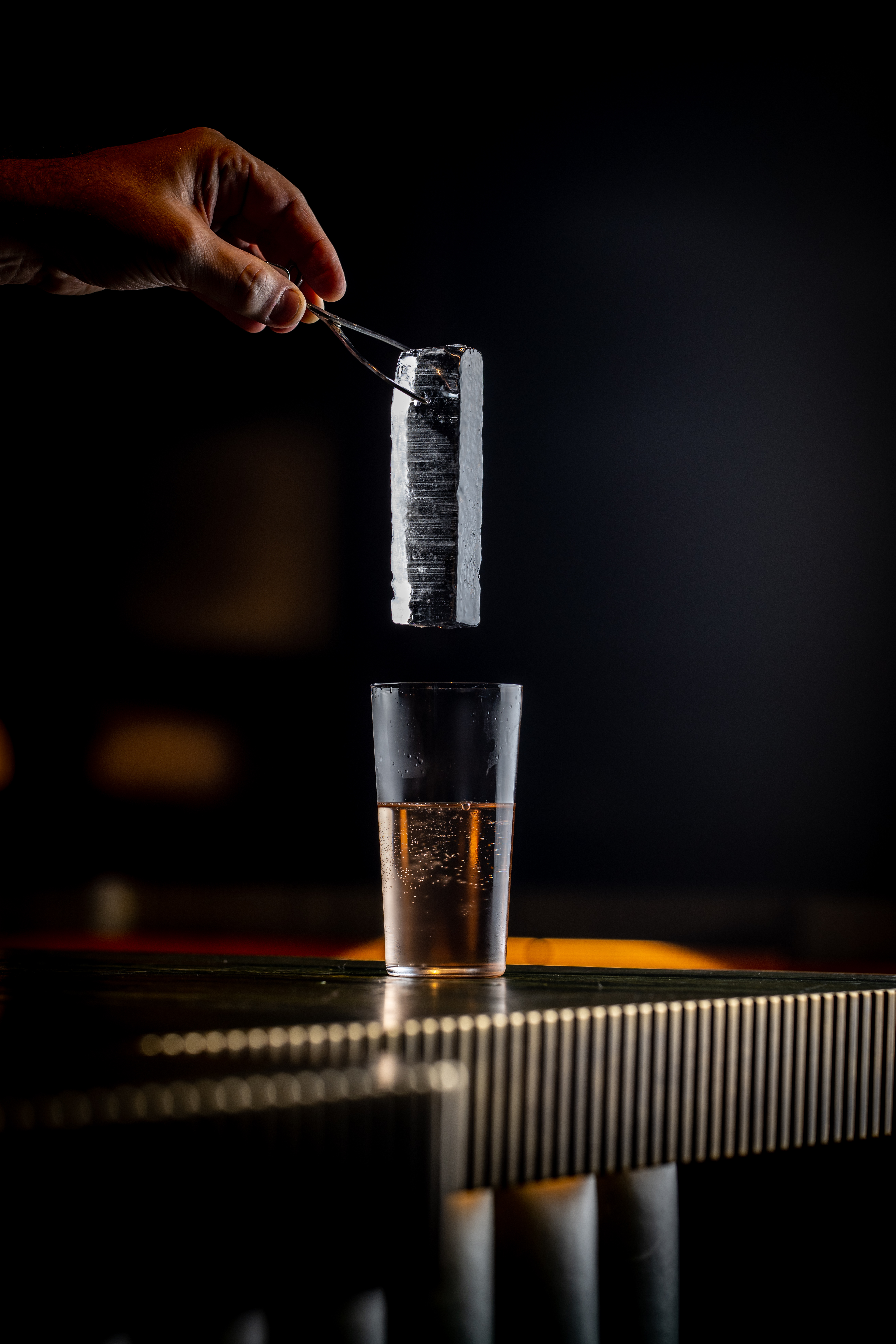
Katana Fizz cocktail
The announcement comes at a pivotal time for the Japanese drink category, with sake exports reaching a record high of 47.5 billion Japanese yen (US$361m) in 2022, up 18 per cent from 2021, and up 431 per cent from 2012, according to the Japan Saké and Shochu Makers Association.
Toku, meaning ‘virtue’ in Japanese, is brewed at the Takasago Brewery in Asahikawa, Hokkaido – Japan’s coldest city and prefecture, with temperatures plummeting to -20°C in the coldest months. Currently producing a Junmai Daiginjo sake (the highest grade of the sake), it uses highly polished (35 per cent) Yamada Nishiki rice, which is fermented in the region’s freezing conditions. Blanchett recalls her first experience of Toku: 'It has such a beautiful fruity invitation, but then it finishes in a very clean way. It's really surprising.'
Sake has suffered from misunderstanding among consumers outside of Japan, but the brains behind Toku are hoping their brand will help to re-educate consumers on the many ways in which this versatile product can be enjoyed. And Blanchett’s investment (personally and financially) will no doubt help them do just that.
Wallpaper* Newsletter
Receive our daily digest of inspiration, escapism and design stories from around the world direct to your inbox.
Honouring tradition, embracing change
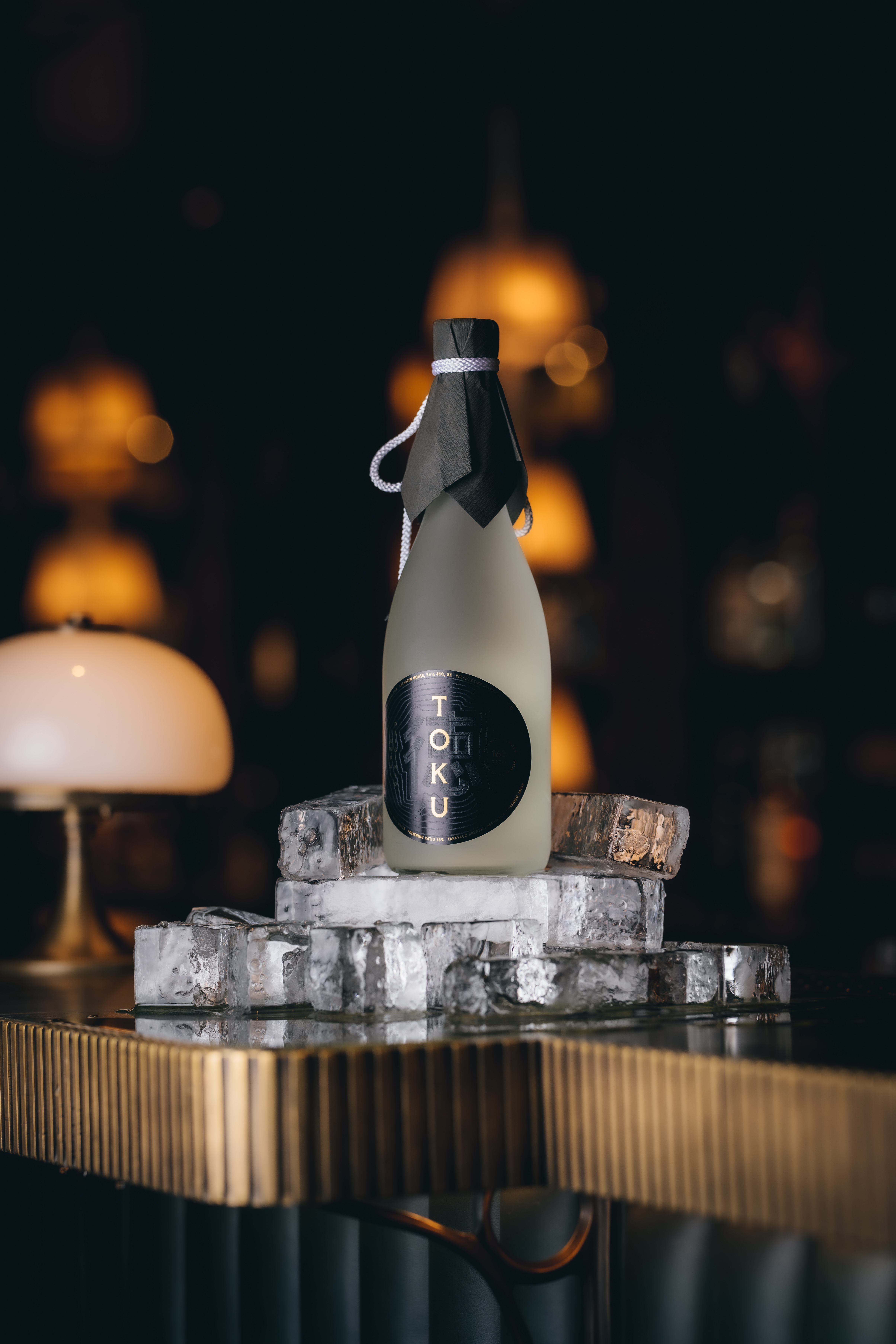
When it comes to how she will approach her new role, Blanchett wants to pay homage to the traditions at sake’s roots while also evolving the experience of the consumer. 'We're really interested to evolve what the experience is before you even try the liquid… inviting the consumer, the diner, the drinker to sort of look at the category slightly differently.'
One way in which that can happen is in making the brand stand apart on a shelf. Blanchett feels that Toku Saké is already in a good position: 'I love the way it's already beginning to evolve. It's very curated, it's very confident and calm and quiet.'
The bottle incorporates both Japanese and English languages, a relative rarity in the category. 'What I love about our bottle is [that it] pays absolute due respect to the heritage and the origin of the Hokkaido region, but you flip it and [it] says we're also here in English-speaking countries.'
Related story
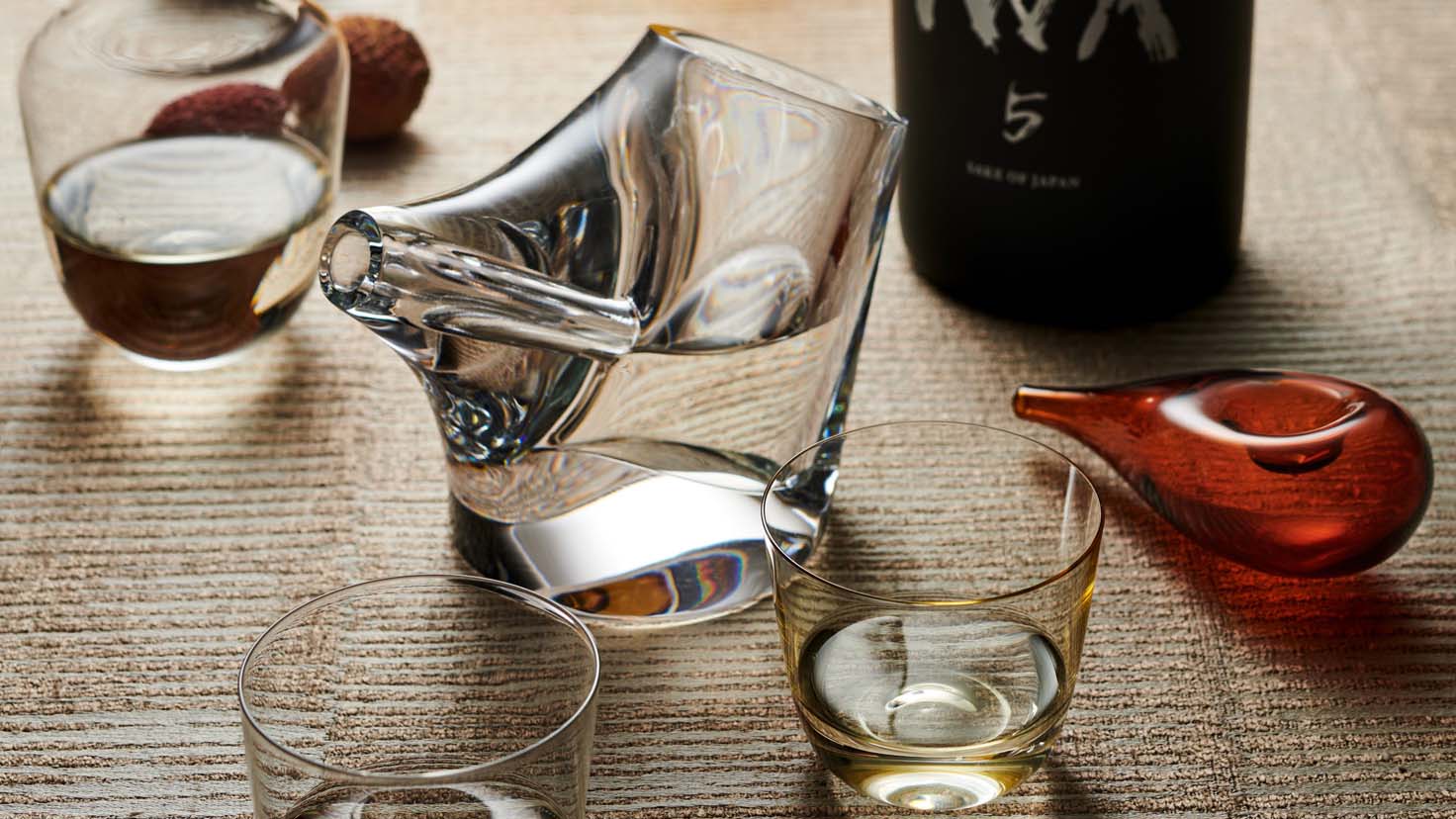
Blanchett champions how sommeliers can introduce consumers to Toku – and the sake category as a whole. 'I think it opens up your experience of food. It's got this complexity that is able to bring out flavours that hitherto perhaps haven't been brought out by wine. I think that's part of the excitement.'
While the export market for sake looks strong, production has been dwindling since a peak in the 1970s, and local interest in the category is waning. How does Blanchett hope Toku Saké can help bring the category back to health? 'Part of what drew us to the category in the first place is love, respect and reverence for the traditions and the processes. But sometimes, when there's a product that your country is well known for [and] a culture outside takes a fresh look at it, you see it afresh.'
Time – and Toku – will tell.
Millie Milliken is a multi-award-winning spirits and cocktail writer and editor based in London. Having spent the beginning on her career working for publications in-house, she now freelances for the likes of Evening Standard, Club Oenologique and The Cocktail Lovers. She also helps run a non-profit for women in the global whisky industry.
-
 Inside Kyotographie, Japan’s world-renowned photography festival
Inside Kyotographie, Japan’s world-renowned photography festivalKyotographie 2025 embraces the theme ‘Humanity’ in Kyoto – Amah-Rose Abram reports with the highlights, from major and emerging photographers
By Amah-Rose Abrams
-
 Isolation to innovation: Inside Albania’s (figurative and literal) rise
Isolation to innovation: Inside Albania’s (figurative and literal) riseAlbania has undergone a remarkable transformation from global pariah to European darling, with tourists pouring in to enjoy its cheap sun. The country’s glow-up also includes a new look, as a who’s who of international architects mould it into a future-facing, ‘verticalising’ nation
By Anna Solomon
-
 The Lighthouse draws on Bauhaus principles to create a new-era workspace campus
The Lighthouse draws on Bauhaus principles to create a new-era workspace campusThe Lighthouse, a Los Angeles office space by Warkentin Associates, brings together Bauhaus, brutalism and contemporary workspace design trends
By Ellie Stathaki